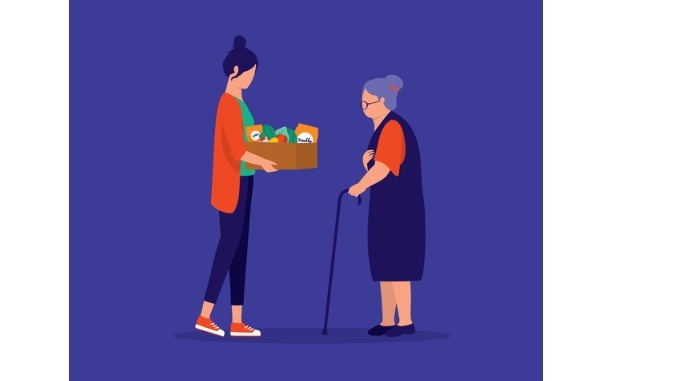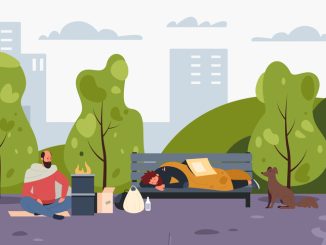
As reported by GP Online, research finds GP staff often help patients in poverty out of their own pockets, according to research from the Joseph Rowntree Foundation, a charity that carries out research on poverty
The study found that patients are turning to GP surgeries for help ‘in such numbers that they feel helpless’, with staff often dipping into their own pockets to help patients facing poverty.
It is ‘increasingly becoming normal’ for people facing hardship to have to rely on the ‘individual financial support of their local GP, district nurse or surgery receptionist’, the study found.
Food banks
More than a fifth of staff reporting providing for patients out of their own pocket, paying for items including food and other essentials. Almost half of a sample of just over 500 staff in primary care said their service provides a food bank.
Almost two thirds of staff in primary and community care said they felt under increasing pressure at work because of patients experiencing hardship – with half warning it was leading to increased stress and/or low morale among staff.
Staff said they felt ‘trapped between the twin pressures of a desire to help people, and a lack of time, resources and expertise to do so effectively’ – and two in five said they were considering leaving their current role over the impact of poverty on patients.
Nearly half of healthcare workers said they had seen patients in the past 12 months who ‘had not followed medical advice or had delayed seeking help due to hardship’ – with two thirds warning the problem was getting worse.
Prescription costs
A GP in Greater Bristol said: ‘For many patients, they have to make a choice to either pay for medication or food for a week, or maybe for heating bills.
‘If they decide not to pay for medications, their health is likely to deteriorate. This puts burden on the GP practices as their needs increase.’
A GP in Greater Manchester said: ‘I see patients experiencing hardship regularly. Probably several per week. Often they will tell me or, if I visit them at home it becomes obvious due to poorly furnished homes. Often stress is a presenting complaint and it is financial worry that underlies the mental health issues.’
A GP in west central Scotland reported a patient with a cardiac problem who had missed more than a dozen appointments because they couldn’t afford transport, with a journey involving two buses required each time.
GP appointments
The GP said: ‘This means multiple appointments with me going round in circles as we haven’t had the investigations to make a diagnosis. This then wastes multiple NHS appointments which is frustrating.’
A practice manager in Greater Manchester said their practice felt it was becoming ‘kind of a support network, rather than actually treating medical conditions’.
The Joseph Rowntree Foundation report said hardship was a ‘challenge that needs political attention and commitment’ and called on politicians to declare what their plan to tackle it would look like.
A failure to tackle hardship would undermine progress on targets politicians have said they will prioritise, such as reducing NHS waiting times, the report warns. It called for an ‘essentials guarantee’ to be built into Universal Credit, warning that the current basic rate of support it delivers – just £91 per week – is ‘well short of the £120 per week Joseph Rowntree Foundation estimates is needed to cover basic essentials’.
Healthcare impact
The report warns that hardship ‘adds to need and demand for appointments’, causing and exacerbating ill health and leading to ‘more complex conditions and more frequent, longer appointments’.
The findings come at a time when GP practices are delivering record numbers of appointments. GP practices delivered around 25% more appointments this April compared with the same month in 2019, with 3% fewer fully qualified GPs.
RCGP chair Professor Kamila Hawthorne said the report – which also looked at the impact on schools – made for ‘troubling reading’.
She said: ‘The link between poverty and worsening health has long been established – financial hardship can take a physical, emotional, and psychological toll which can result in the development, or exacerbation of, multiple chronic conditions.
‘It is unacceptable that a developed nation like the UK should see such a high number of children and families forced to rely on foodbanks, or that such a high number of schools and GP practices are having to step in to deal with the consequences of deprivation. Worryingly, GPs are increasingly being asked for support with non-medical items including access to council services and financial advice.’
She warned that GP practices could not be expected to ‘pick up the pieces’ of a poverty crisis – and called on the next government to deliver an ambitious plan to ‘tackle the many factors contributing to the cost-of-living crisis and widening health inequalities, as well as investing in and supporting vital frontline services, including primary care’.



Be the first to comment